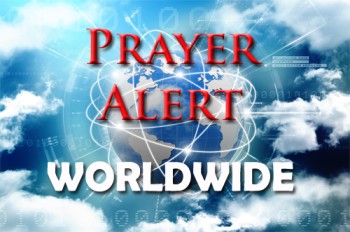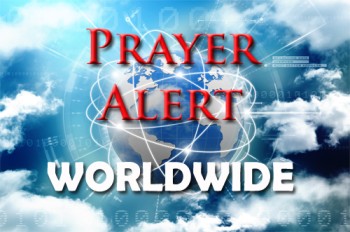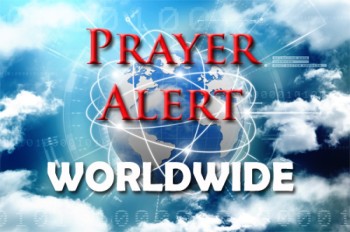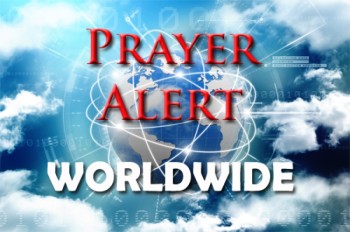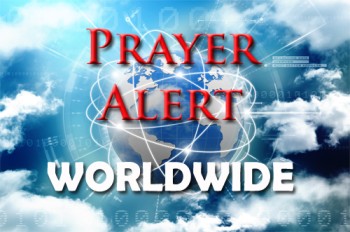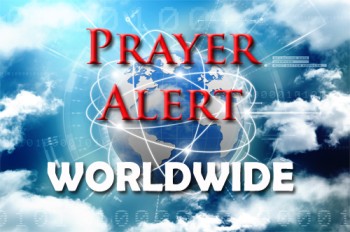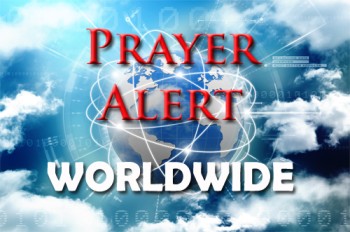Displaying items by tag: Africa
Nigeria: women vaccinators lead the battle against polio
In a camp just outside Lagos, female vaccinators like Eucharia and Aishatu are leading the charge against polio. Though Nigeria was declared free of wild poliovirus in 2020, the country continues to battle outbreaks of vaccine-derived polio (cVDPV), especially in under-immunised and conflict-affected regions. Women have proved indispensable in this effort, often gaining household access where male health workers cannot due to cultural or security concerns. Despite facing mistrust, misinformation, and physical danger, these women build trust through persistence, community dialogue, and personal sacrifice. Many supplement their modest income through small businesses, unintentionally turning polio campaigns into a platform for female empowerment and entrepreneurship. Their efforts have not only improved vaccination rates but also strengthened public health infrastructure and spurred broader social change. While wild polio is now endemic only in Pakistan and Afghanistan, Nigeria’s experience offers vital lessons. Its fight against polio, led by women, supported by community trust, and bolstered by innovative strategies, has reshaped how public health can be delivered in fragile settings.
Sudan: at least forty dead in a week in worst cholera outbreak in years
Doctors Without Borders (MSF) says that Sudan’s Darfur region is facing its worst cholera outbreak in years, with at least forty deaths reported in the past week and more than 2,470 deaths nationwide since August 2024. The crisis has been caused by the two-year war between Sudan’s army and the paramilitary RSP, which has displaced millions and severely restricted access to clean water. In Tawila, 380,000 displaced people survive on an average of only three litres of water a day - less than half the emergency minimum. Contaminated sources, damaged sanitation systems, and mass displacement have accelerated the disease’s spread, which now reaches beyond Sudan into Chad and South Sudan. MSF’s head of mission has warned that heavy rains are worsening conditions: he said, ‘Survivors of war must not be left to die from a preventable disease.’ Without urgent humanitarian intervention, the outbreak threatens to spiral further, endangering countless lives in an already devastated region.
Zimbabwe: ban on street vendors and second-hand clothes
The government has ordered the immediate removal of street vendors from Harare’s central business district and reaffirmed a national ban on the import and sale of second-hand clothes. Local government minister Daniel Garwe cited concerns over urban disorder, the rise in illicit nighttime activities, and the negative impact on formal businesses. However, opposition politicians believe street vending stems from desperation, not defiance: they argue that many citizens rely on informal trade for survival amid chronic unemployment and economic mismanagement. One has said that such policies, without viable alternatives, only deepen suffering. Instead of punitive measures, she has called for inclusive economic reform, skills development, and gradual integration of informal traders into formal markets. Previous crackdowns failed because they didn’t address the underlying causes of poverty.
Africa: over 22,000 killed by Islamist militants in a year
A new report has revealed that over 22,000 people, most of them Christians, have been killed by Islamist militants across Africa in the year to June 2025. This marks a 60% increase in violence since 2023. The Jama’at Nusrat ul-Islam wa al-Muslimin (JNIM) network, now controlling more than half of Burkina Faso, was responsible for over 80% of fatalities in the Sahel region. In Somalia, al-Shabaab killed more than 6,000 people, while the Islamic State in Somalia (ISS) is emerging as a global IS hub. The Allied Democratic Forces, linked to IS, claimed a deadly church attack in eastern Congo, killing 43 during a night service. Media restrictions and loss of state control across 950,000 square kilometres are masking the true scale of violence. The report warns of growing danger to Christian communities throughout Africa.
Nigeria: illegal export of over 1,600 live birds prevented
Customs officials have intercepted a shipment of over 1,620 live parrots and canaries at Lagos' international airport, bound for Kuwait without the required permits. The birds, including protected ring-necked parakeets and yellow-fronted canaries, were seized during a routine inspection on 31 July. A spokesman said that the airport remains under strict surveillance to prevent illegal trafficking. As a signatory to the Convention on International Trade in Endangered Species (CITES), Nigeria must ensure such exports have legal documentation, which this shipment did not have. Authorities are investigating those behind the attempted export. The rescued birds were handed over to the National Park Service for rehabilitation. Conservationists view this seizure as a major success in Nigeria’s ongoing struggle against wildlife trafficking. Although the country is a key transit hub due to porous borders, widespread corruption, and weak enforcement, the interception is a sign of positive change in the fight against illegal wildlife trade, which globally generates $8–10 billion annually.
Sudan: oil-rich region becomes new focus of civil war
Sudan’s war has entered a dangerous new phase, with fierce fighting erupting in the oil-rich Kordofan region. Control of Kordofan is strategic - it holds vital oil infrastructure and could shift the war’s trajectory. The army, led by Gen Abdel Fattah al-Burhan, is attempting to push out the Rapid Support Forces (RSF), commanded by Gen Mohamed 'Hemedti' Dagalo, who once supported al-Burhan before a violent split in 2023. Airstrikes by the army have killed dozens of civilians in towns like el-Fula and Abu Zabad, drawing condemnation from the UN. Meanwhile, the RSF has also been accused of massacres, with over 450 civilians, including children, killed in recent attacks. The conflict, now in its third year, has displaced 12 million and claimed 150,000 lives. Analysts warn the RSF's local tribal support could give them the upper hand in parts of Kordofan. Both sides are now locked in a deadly struggle over the region’s towns, oil fields, and supply routes. Humanitarian agencies are calling for urgent international action to stop the bloodshed.
Algeria: president offers to mediate between Malian authorities and rebel Tuaregs
Algeria’s president, Abdelmadjid Tebboune, has offered to mediate between Mali’s military-led government and northern rebel groups, including Tuareg and Arab nationalists, amid escalating regional tensions. However, he clarified that he would only step in if formally invited by Mali. His statement comes after Mali's junta withdrew from a previous Algeria-brokered peace deal and replaced UN peacekeepers with Russian Africa Corps mercenaries, formerly Wagner. Algeria has refused to tolerate mercenary forces on its 1,400 km shared border, despite its own longstanding ties with Russia. Mutual accusations have intensified, with both countries alleging drone strikes and cross-border incursions. Mali has accused Algeria of harbouring militants who conduct attacks from Algerian soil, a claim Algiers denies. The withdrawal of the UN’s MINUSMA peacekeeping force in 2023 has left a security vacuum in northern Mali, now filled by armed factions and foreign operatives. Tebboune’s call for diplomacy reflects Algeria’s concern over instability and the threat of wider conflict spreading across the Sahel region.
Nigeria: ‘We live in fear’: five Christians killed during Bible study
Five Christians were killed and three others injured during a Bible study on Friday in Kaduna State by armed Fulani extremists. The victims, members of the Evangelical Church Winning All (ECWA), had gathered peacefully when the attackers struck. The killings are part of a continuing pattern of violent persecution targeting Christian farming communities in the Middle Belt region, where believers live in constant fear. The area has seen 110 kidnappings in the past six months, with many communities unable to sleep safely or work their land. Despite persistent attacks, the Nigerian government is widely criticised for its inaction. International voices have called for Nigeria to be redesignated as a Country of Particular Concern. While this designation was made under the Trump administration in 2020, it was removed by the Biden administration in 2021 without explanation, a move condemned by religious freedom advocates. Nigeria remains the deadliest country for Christians globally, with 90% of Christian martyrs in 2022 killed there.
Guinea: human rights activists disappeared a year ago
A full year has passed since Guinean activists Oumar Sylla (known as Foniké Menguè) and Mamadou Billo Bah were forcibly disappeared on 9 July 2024, with no word on their whereabouts. Arrested by armed men in Conakry and reportedly taken to the Loos archipelago, the two members of the now-banned National Front for the Defence of the Constitution (FNDC) are believed to have endured torture and secret detention. Their case reflects a troubling rise in forced disappearances under Guinea’s ruling junta, which human rights organisations describe as a ‘climate of terror.’ Other victims include civil society leader Abdoul Sacko - abducted, tortured, and abandoned in the bush - and lawyer Mohamed Traoré, also abducted and abused. Despite initial promises of investigations, authorities have remained silent. Amnesty International has called for immediate and transparent inquiries, but families continue to wait in anguish. As hope fades, the international community is urged to demand accountability for Guinea’s growing list of enforced disappearances.
Zimbabwe: new IOC president faces high expectations and big challenges
Olympic swimming champion Kirsty Coventry has been inaugurated as the tenth president of the International Olympic Committee (IOC), becoming the first woman, first African, and youngest person to hold the role. Her appointment has ignited pride in Zimbabwe and hope for broader global inclusion, particularly for Africa and the Middle East. Coventry has described the Olympics as a platform for inspiration and hope, while also vowing to lead on complex issues. One pressing concern is what to do about transgender athletes, especially after recent controversies. She has pledged to create a taskforce involving scientists and federations to revisit gender eligibility policies, prioritising fairness in the female category. Coventry’s first major decision was to pause the 2036 Games bidding process, signaling a desire for transparency and reform. Yet she faces challenges ahead, including rising global tensions and pressure to ensure the Olympic movement remains politically neutral while promoting unity. Her leadership will be tested by both internal reform and external geopolitical strife.



